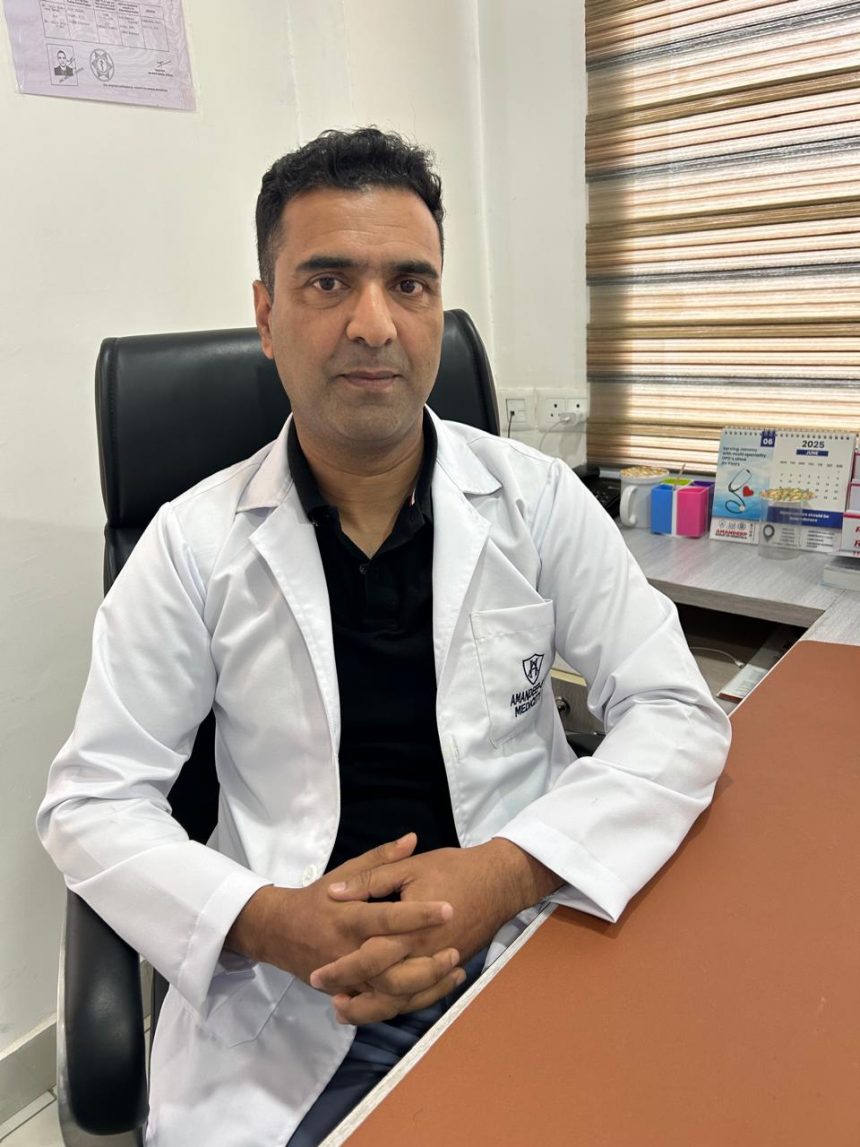Srinagar, Aug 17: Kashmir is witnessing a worrisome rise in urological cancers, especially those affecting the kidneys, bladder and prostate. The reason experts cite is late diagnosis and intense smoking among males.Speaking to Rising Kashmir, Dr Sheikh Riyaz, Consultant Urologist at Amandeep BR Medicity Srinagar, stressed the urgent need for public awareness and early screening to tackle the alarming trend. “Urology is not a single speciality; it’s an umbrella of sub-disciplines like endourology, uro-oncology, andrology, renal transplantation, robotic surgery,” he said. “We treat everything from kidney stones and bladder tumours to complex prostate conditions.”Calling prostate cancer the most common malignancy among men globally, Dr Riyaz said it typically strikes between the ages of 60 to 70 and is now being seen with increasing frequency in Kashmir.“Bladder cancer ranks fifth globally in both men and women, and renal cancer is the seventh most common. Here in Kashmir, cases of haematuria (blood in urine)—often a symptom of bladder cancer—are becoming common in both men and women. These cases frequently present in advanced, incurable stages,” he cautioned. Unlike in the 1990s when renal tumours often went undetected until metastasis, advancements in imaging—particularly ultrasound—are now catching tumours early. “In Kashmir, we now diagnose renal cancers at a stage where they are curable. It’s a big leap forward, thanks to technology,” Dr Riyaz said.For those over the age of 35 experiencing haematuria, he strongly recommends CT urograms and timely evaluations, pointing out that around 12 per cent of such cases turn out to be bladder cancers.Dr Riyaz said prostate screening is vital between the ages of 50 and 70, ideally every four years, using the PSA (Prostate-Specific Antigen) test. However, he cautioned: “A high PSA doesn’t always mean cancer—it needs further clinical evaluation.”He blamed smoking and occupational exposure—especially in industries like paint and chemical handling—for the spike in bladder cancer cases. “Smoking remains the primary culprit,” he said. “These cancers were uncommon in the Valley just a decade ago. The recent spike is due to both increased incidence and better screening facilities,” Dr Riyaz said. Highlighting the hospital’s advanced infrastructure, the Consultant Urologist said: “Amandeep BR Medicity is equipped with the latest robotic and diagnostic tools. We offer world-class urological care right here in Kashmir.”Dr Riyaz urged the public not to ignore symptoms like blood in urine, changes in urinary habits, or pelvic discomfort. “Early diagnosis saves lives. People must come forward for screening while treatment is still possible,” he said.
‘Renal, bladder & prostate cancers on rise in Kashmir’
Dr Sheikh Riyaz of Amandeep BR Medicity urges early screening, blames smoking, late diagnosis for cancer surge

Sign Up For Daily Newsletter
Be keep up! Get the latest breaking news delivered straight to your inbox.
By signing up, you agree to our Terms of Use and acknowledge the data practices in our Privacy Policy. You may unsubscribe at any time.
Leave a Comment Leave a Comment
Stay Connected
Latest News
Recent Posts
- Woman, two minors found dead in Ramban village, probe launched: Police
- India to Play Asia Cup 2025 without Team Sponsor: Shocking Development Ahead of Tournament.
- CM Omar Abdullah reviews AIIMS Awantipora progress, calls for timely completion
- Attendance must for all classes particularly 9th, 10th, 11th & 12th: DSEK
- Two Army Personnel injured in Kulgam Encounter succumb






